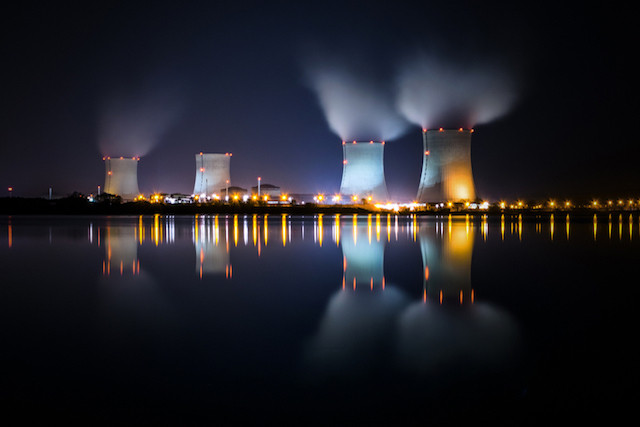Environment minister Carole Dieschbourg (déi gréng) outlined Bill 7221 on Wednesday, saying it would introduce a specific regime of nuclear civil liability while sending a strong anti-nuclear message. Currently, Luxembourg has no legal framework in case of an accident at a nuclear power plant or during the transport of nuclear materials.
Dieschbourg assured MPs who were sceptical about the legal application of the text, that a legal study had been carried out during the bill’s preparation. Discussions also centred around the idea of “collective redress”, enabling a large number of victims to regroup and sue the same operator in the event of a nuclear accident.
MP Henri Kox (déi gréng) was appointed rapporteur of the bill.
While the bill does not focus purely on the ageing Cattenom plant in France, it is the closest nuclear power station located just 22 kilometres from Luxembourg City.
The first unit is now over 30 years old and politicians as well as organisations including Greenpeace have raised concerns about security and safety precautions at the site. In October 2018, the latter flew a Superman-shaped drone into the compound in a bid to highlight the site’s vulnerability.
In April 2016, Luxembourg prime minister Xavier Bettel (DP) said at a press conference with his then French counterpart, Manuel Valls, that a problem at the plant could “wipe the grand duchy off the map”. He said the country would be prepared to help finance the site’s closure. Valls pledged to cut French reliance on nuclear energy from more than 75% to 50% by closing 24 reactors by 2025. It currently accounts for 71% of the country's energy.
In 2018 French president Emmanuel Macron said the country would close 14 of the then 58 nuclear reactors by 2035, of which 4-6 would be closed by 2030. At the same time, it planned to triple its wind power energy output by 2030 and increase solar energy output fivefold over the same period.
Why not sign the Paris and Brussels agreements?
Luxembourg considers these agreements “unfavourable” for the Grand Duchy for several reasons:
They limit the amount of compensation in the event of a nuclear accident (€700 million on the French side and €1.2 billion on the Belgian side). However, according to Dieschbourg, recent nuclear accidents in Chernobyl and Fukushima have shown that these amounts are largely insufficient and costs to handle the fallout of a nuclear accident can be as high as €120 billion--it was even €430 billion for Fukushima.
The agreements provide for a 10-year time limit for the injured party to bring legal proceedings against the operator of the nuclear power plant. This is too short, especially if a victim is diagnosed much later with cancer related to a nuclear incident.
Environmental and intangible damage is not taken into account by the operator in the event of a nuclear accident. The agreements only cover property damage and personal injury. The future Luxembourg legal framework provides that damage caused to the environment by nuclear activity may be subject to appropriate compensation (damage to land, nature or water).
The Luxembourg courts do not have jurisdiction over the consequences of a nuclear accident. In other words, a Luxembourg injured party must bring an action before a French or Belgian court to assert their claim.
